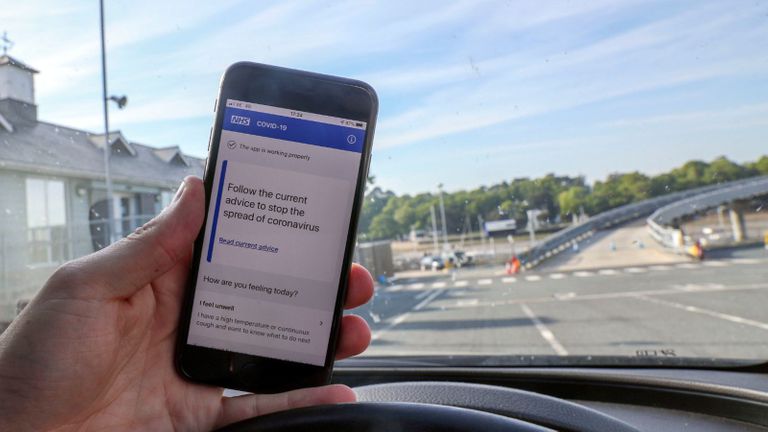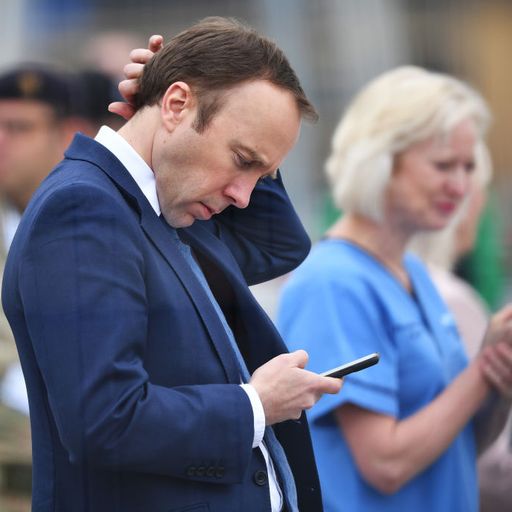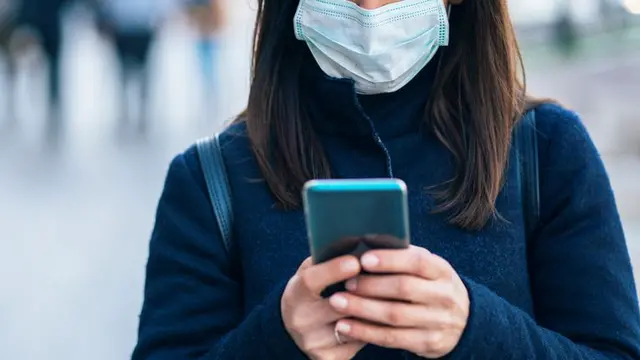The government has launched trials of a second contact-tracing app using technology provided by Google and Apple, after its first attempt to build a homegrown app ended in failure.
The new app will tell people whether they have been close to someone who has had
coronavirus
and send out alerts advising them to self-isolate.
It will be trialled on the Isle of Wight from Thursday, "followed shortly" by the London Borough of Newham, according to the Department of Health and Social Care.

June: Contact tracing app U-turn
There is no date set for a national rollout.
The app adopts a Bluetooth system designed by Apple and Google - and already used in several countries, including Germany, the Republic of Ireland and Northern Ireland - to make an anonymous log of phones that have been in proximity to each other.
Advocates say this can help capture anonymous contacts that are hard to track with manual contact tracing, such as people standing next to each other on public transport.
Unlike the first app, this contact-tracing app will also include a raft of other features designed to give users "personal benefits".
These include a countdown timer for people who are self-isolating, alerts about the local level of the virus and QR code check-ins to buildings and businesses.

The inside story of how government failed to develop a contact-tracing app
Sky News reported last month that Apple
had denied at least one foreign government permission
to include QR logins in its app, citing fears they could be used to create a map of someone's whereabouts, so the introduction of this feature is a coup for NHSX, the innovation unit building the app.
Isle of Wight MP Bob Seely urged islanders to download the app, saying it was "good for our nation".
He added: "I am asking all businesses - and especially those in the hospitality and visitor sector - to download and advertise the QR code."
The first contact-tracing app, championed by Health Secretary Matt Hancock, was abandoned in June after field tests showed it failing to detect iPhones with sufficient accuracy.
The new app is understood to have a detection rate of over 99%, meaning it picks up almost every phone that is near it. NHSX sources say it uses between 2% and 3% of battery a day.
**Listen to the Daily podcast on **
Apple Podcasts
**, Google Podcasts
, Spotify
, Spreaker
**
When the first app was ditched, Mr Hancock criticised the ability of apps using Apple and Google's technology to measure distance accurately.
NHSX sources say the new app is much more accurate, but it still has a false negative rate of 31%, meaning that three out of every 10 phones it picks up will not have been within two metres, the threshold for a "dangerous interaction".
Dido Harding, executive chair of the NHS Test and Trace Programme, said: "By launching an app that supports our integrated, localised approach to NHS Test and Trace, anyone with a smartphone will be able to find out if they are at risk of having caught the virus, quickly and easily order a test, and access the right guidance and advice."
 简体中文
简体中文

